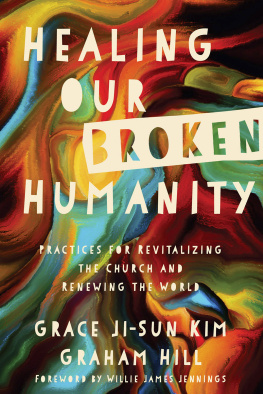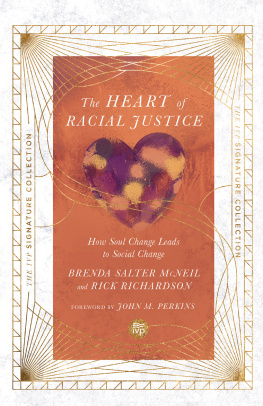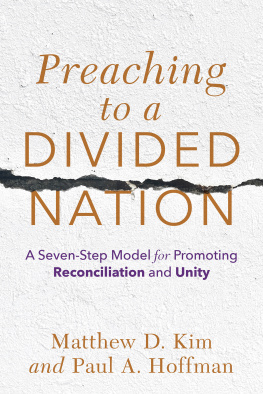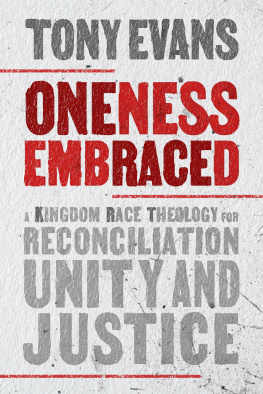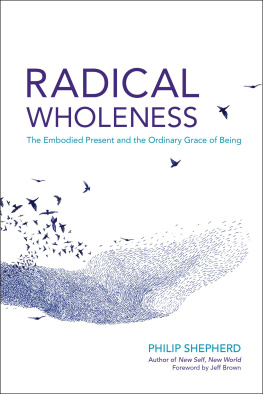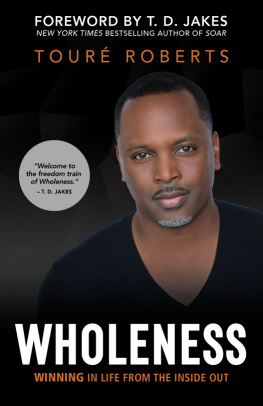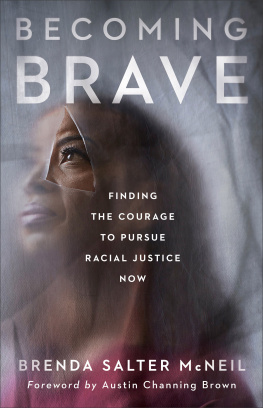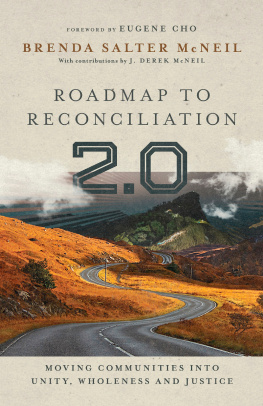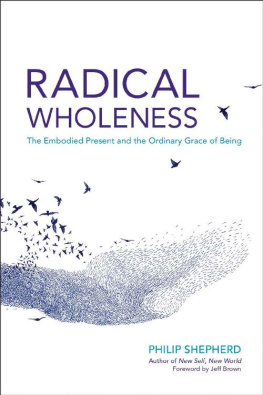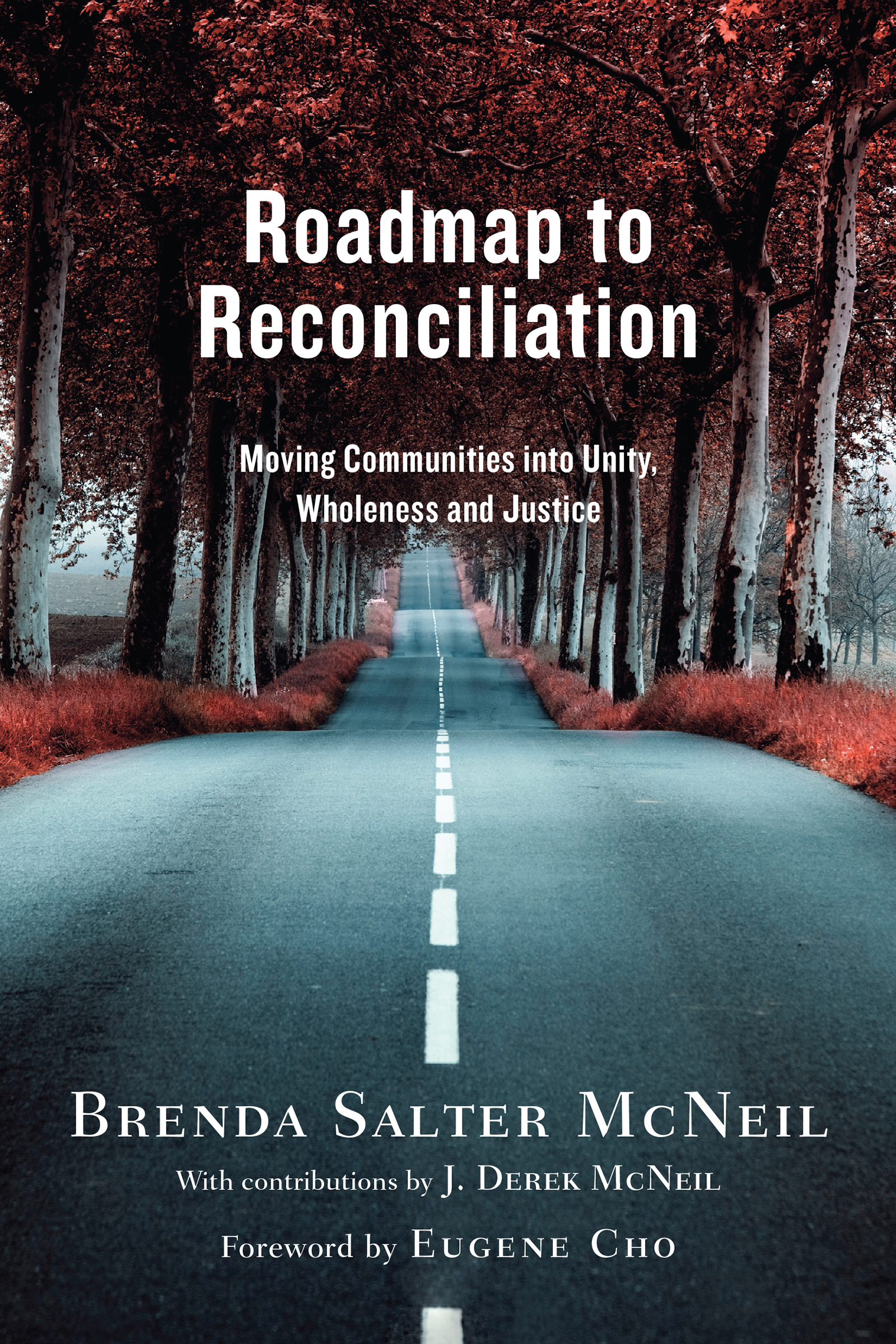InterVarsity Press
P.O. Box 1400, Downers Grove, IL 60515-1426
2015 by Brenda Salter McNeil
All rights reserved. No part of this book may be reproduced in any form without written permission from InterVarsity Press.
InterVarsity Pressis the book-publishing division of InterVarsity Christian Fellowship/USA, a movement of students and faculty active on campus at hundreds of universities, colleges and schools of nursing in the United States of America, and a member movement of the International Fellowship of Evangelical Students. For information about local and regional activities, visitintervarsity.org .
Scripture quotations, unless otherwise noted, are from the New Revised Standard Version of the Bible, copyright 1989 by the Division of Christian Education of the National Council of the Churches of Christ in the USA. Used by permission. All rights reserved.
While any stories in this book are true, some names and identifying information may have been changed to protect the privacy of individuals.
Author photo by Zac Davis. Makeup by ILCK Artistry.
Cover design: Cindy Kiple
Images: Ebru Sidar / Trevillion Images
ISBN 978-0-8308-9923-4 (digital)
ISBN 978-0-8308-4442-5 (print)
Library of Congress Cataloging-in-Publication Data
Names: McNeil, Brenda Salter, 1955
Title: Roadmap to reconciliation : moving communities into unity, wholeness,
and justice / Brenda Salter McNeil ; with contributions from J. Derek
McNeil.
Description: Downers Grove : InterVarsity Press, 2015. | Includes
bibliographical references. | Description based on print version record
and CIP data provided by publisher; resource not viewed.
Identifiers: LCCN 2015036027 (print) | LCCN 2015037342 (ebook) | ISBN
9780830899234 (eBook) | ISBN 9780830844425 (hardcover : alk. paper)
Subjects: LCSH: Reconciliation--Religious aspectsChristianity. |
Christianity and justice. | Church and minorities.
Classification: LCC BT738.27 (print) | LCC BT738.27 .M36 2015 (ebook) | DDC
234/.5dc23
LC record available at http://lccn.loc.gov/2015036027
I dedicate this book to the memory of my mother,
Dorothy Elizabeth Mitchell Salter,
with love and gratitude for her parenting,
prayers and perseverance,
and to Catherine Meyer Headington,
who invested in me and saw the potential
of who I could become.
I am who I am today because of them.
We are caught in an inescapable network of mutuality,
tied in a single garment of destiny. Whatever affects
one directly, affects all indirectly.
Rev. Dr. Martin Luther King Jr.
Letter from a Birmingham Jail
Contents
Foreword
Eugene Cho
R econciliation. Lets be honest. Reconciliation has become a trendy topic of conversation... which isnt necessarily a bad thing. People are talking about it and thats good. There are gatherings, teachings, sermons, classes and entire conferences around the subject of reconciliation. But, if were not careful, it is quite possible and tempting to be more in love with the idea of reconciliation than to actually engage in the actual work of reconciliationthe arduous, painful and messy marathon work of reconciliation. Thats the pivotal question we must ask: Are we more in love with the idea of following Jesus than actually following Jesusincluding to and through some difficult areas?
One of my favorite (which often means challenging) stories from the Scriptures comes from John 4. One can talk about Samaria, theologize about Samaria, preach about Samaria, liturgize about Samaria, sing about Samaria... but one can still do all those things and still not walk through Samaria.
And this is precisely why Roadmap to Reconciliation by Dr. Brenda Salter McNeil is such an important book and resource. Salter McNeil not only does the critical job of explaining the vision of reconciliation but, equally as important, guides us through the practical steps of actually moving forward and toward reconciliation while constantly reminding us of the vision.
And while I certainly appreciate and applaud the practicalities of this book, Im especially grateful for the honesty and realness because the last thing we need is a glamorized or romanticized vision of reconciliation. Anyone who conveys that reconciliation work is easy either isnt on that journey or is trying to sell something.
But the books foremost credibility is directly associated with the integrity of the person whos inviting us to this journey of reconciliation. I prefer not to use words like leading, expert, guru or whatever other elevated phrases we use to describe people. What I knowas a longtime friend, fellow pastor and colleague in kingdom ministryis that Salter McNeil walks the walk. For her, this isnt just a course she teaches as a university professor, a sermon she preaches at a church or a set of consulting principles she imparts to institutions or organizations. This is a calling, a deep conviction and a journey she has devoted much of her life to, and it has permeated every aspect of her life.
We can all agree we are living in challenging times that demand the important and critical work of reconciliation. While its possible we may have a trajectory of where we need to go, we dont quite know how to get there. We need a map. We need a guide. We need a roadmap to reconciliation.
Introduction
A Prophetic Journey
The task of prophetic ministry is to nurture, nourish and evoke a consciousness and perception alternative to the consciousness and perception of the dominant culture around us....
The alternative consciousness to be nurtured, on the one hand, serves to criticize in dismantling the dominant consciousness.... On the other hand, that alternative consciousness to be nurtured serves to energize persons and communities by its promise of another time and situation toward which the community of faith may move.
Walter Brueggemann

W here have you been? Why havent you helped us? Mavis shouted at us.
Over twenty years ago my husband and I found ourselves in the British city of Birmingham, the second most populous urban area in the United Kingdom and home to a large number of Jamaican residents.
We had been traveling in England for three weeks with a group of African American seminarians and church leaders. It was exhausting and exhilarating in equal measure. We lectured on issues pertaining to the black church in classrooms, preached in churches, dialogued with police, gave radio interviews, talked with civic and community leadersall in partnership with the Oxford Centre for Mission Studies.
I had really been looking forward to this particular part of our trip. I thought this meeting in the Jamaican community would be the place where we would receive our warmest welcome. We were going to be with other black people! It would be a chance to rest, rejuvenate and let down our guard. I had imagined that we would be laughing and relaxing together in no time over good food and good music.
We pulled up at the church building in our rundown van, and a large group of Jamaican young people were waiting for us outside. But after we filed into the church and sat through some brief introductions, a young woman stood up and literally began shouting at us.
Why didnt you come sooner?


